Project
Rhodes Aids Day
The theme of the Rhodes AIDS Day was "Getting to Zero" A talk given by Judge Cameron how He has lived with Aids for years and how he overcame the fear to hide hes status away and how it took courage to reveal hes status and how he openly talks about he Status towards other people.A very motivational and inspiring talk.A performance by Ubom Dance group was also attend a performance that Expressed HIV/AIDS. 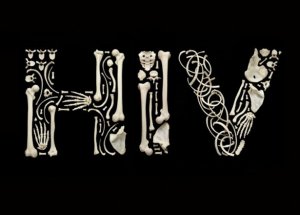
(A piece Taken From the Gauteng Personalities)
Constitutional Court Judge Edwin Cameron is regarded around the
world as an inspirational figure for his work in human rights
activism, championing gay and lesbian equality, and his outspoken
stance on HIV/Aids.
Edwin was born in Pretoria in 1953 and finished his schooling at
Pretoria Boys High. He was able to study at Stellenbosch University
after receiving the Anglo-American Corporation Open Scholarship
award, and went on to complete his BA Law degree and Honours in
Latin.
His brilliant legal mind truly came to the fore during his studies
at Oxford University in 1976, where he obtained a BA in Jurisprudence
with first class honours, the Jurisprudence Prize, Bachelor of Civil
Law with first class honours, and the Vinerian Scholarship. Not
stopping there, Edwin later attained his LLB from the University of
South Africa cum laude, and was awarded the Johannes Voet
Medallion for Best Law Graduate.
After he was appointed South African High Court judge by Nelson
Mandela in 1994, Edwin took a brave step in publicly admitting his
homosexuality and HIV-positive status. He was largely inspired to do
so because of the widespread negative stigma attached to the disease,
where millions of people suffering from Aids were needlessly
condemned by society.
Edwin later wrote his critically acclaimed and prize-winning
memoire Witness to Aids, in which he debunks myths about the
disease and expresses his anger at the fact that he, on a judge’s
salary, can afford treatment and medication while so many others are
condemned to die just because they are poor.
His work in promoting gay and lesbian equality also went a long
way to help secure the inclusion of sexual orientation in the South
African Constitution.
Edwin has been acknowledged for these and many other achievements
by being given the Nelson Mandela Award for Health and Human Rights,
the Transnet HIV/AIDS Champions Award, induction as an Honorary
Fellow of the Society for Advanced Legal Studies in London, the
special award by the Bar of England and Wales for “contribution to
international jurisprudence and protection of human rights”, and
many others.
He was also invited as a keynote speaker at the XII International
Conference on HIV/AIDS in Durban, and was invited to deliver an
inaugural lecture for the British Academy in London.
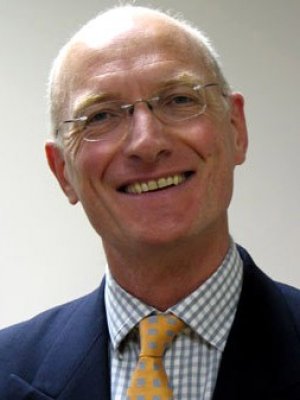
[more]
A special address given by Constitutional Court Justice Edwin Cameron
Topic:"Four Big issues in AIDS:prevention,testing,treatment and
stigma-a Judges personal perspective.
A very personal but rewarding talk was delivered by Judge Cameron talking from a personal experiences and from the heart.He opened up towards the audience and told them he was GAY and was HIV positive.He lived with a STIGMA for a few years to ashamed to tell anyone about it.
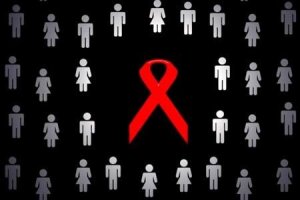
[more]

AIDS is the sixth leading cause of death among people ages 25 - 44,
Human immunodeficiency virus (HIV) causes AIDS. The virus attacks the
immune system and leaves the body vulnerable to a variety of
life-threatening infections and cancers.HIV has been found in saliva,
tears, nervous system tissue and spinal fluid, blood, semen.
The virus can be spread (transmitted): Through sexual contact -- including oral, vaginal, and anal sex Through blood -- via blood transfusions (now extremely rare in the U.S.) or needle sharing From
mother to child -- a pregnant woman can transmit the virus to her fetus
through their shared blood circulation, or a nursing mother can
transmit it to her baby in her breast milk
Other methods
of spreading the virus are rare and include accidental needle injury,
artificial insemination with infected donated semen, and organ
transplantation with infected organs. AIDS is NOT transmitted to a person who DONATES blood or
organs. People who donate organs are never in direct contact with people
who receive them. Likewise, a person who donates blood is never in
contact with the person receiving it. In all these procedures, sterile
needles and instruments are used. However, HIV can be
transmitted to a person RECEIVING blood or organs from an infected
donor. To reduce this risk, blood banks and organ donor programs screen
donors, blood, and tissues thoroughly.
People at highest risk for getting HIV include: Injection drug users who share needles Infants born to mothers with HIV who didn't receive HIV therapy during pregnancy People engaging in unprotected sex, especially with people who have other high-risk behaviors, are HIV-positive, or have AIDS People
who received blood transfusions or clotting products between 1977 and
1985 (before screening for the virus became standard practice) Sexual partners of those who participate in high-risk activities (such as injection drug use or anal sex) SymptomsAIDS begins
with HIV infection. People who are infected with HIV may have no
symptoms for 10 years or longer, but they can still transmit the
infection to others during this symptom-free period. If the infection is
not detected and treated, the immune system gradually weakens and AIDS
develops. Acute HIV infection progresses over time (usually a few weeks to months) t(no symptoms) and then to early symptomatic HIV infection.
Almost all people infected with HIV, if they are
not treated, will develop AIDS. There is a small group of patients who
develop AIDS very slowly, or never at all. These patients are called
non progressors, and many seem to have a genetic difference that prevents
the virus from significantly damaging their immune system. The
symptoms of AIDS are mainly the result of infections that do not
normally develop in people with a healthy immune system. These are
called opportunistic infections. People with AIDS have had their
immune system damaged by HIV and are very susceptible to these
opportunistic infections. Common symptoms are: Note:
At first, infection with HIV may produce no symptoms. Some people,
however, do experience flu-like symptoms with fever, rash, sore throat,
and swollen lymph nodes, usually 2 - 4 weeks after contracting the
virus. This is called the acute retro viral syndrome. Some people with
HIV infection stay symptom-free for years between the time when they are
exposed to the virus and when they develop AIDS.
[more]
A final performance of HUSH by Ubom! -/The ground breaking and controversial show about Aids
Bitingly satirical and sickeningly
honest, audiences are confronted with a raw look at our South African
reality. Audiences are exposed to a theatre work unlike any
other they've seen before. A highly controversial play dealing with
stigmas of all labels, no person having seen this work has left a
performance unaffected. Topics which are overlooked in polite
conversation are thrown high in the air and left to smash open upon the
stage. Hush is funny, hard-hitting and sure to fire up everyone
that witnesses it. Watch at your own risk!
Now in it’s 3rd year
of reinvention, having begun as Risky Business and transforming into
Hush, the impact of the production is still clearly evident. Hush was
again in 2010, a much sought after issue-based participatory theatre
show which encourages problem-solving and promises to lead to
behavioural change in audiences. Being acutely aware of the danger of
trying to ‘educate’ or ‘develop’ people, we used a repertoire of
dramatic techniques that enables us to disarm audiences, shake them up,
and communicate directly and effectively. The show continues to be
effective and we have constant requests for it to be toured to local
schools, and also as the main alternative tool for Rhodes University in
opening discussion amongst staff about HIV/AIDS policies.
|
|
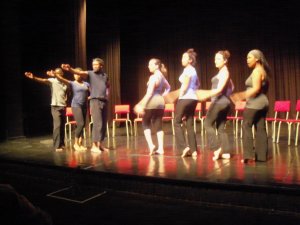 
[more]
i am learn i but HIV when you have HIV you need to go to the clinic and get tested when positive you need to use condom i love that thing because tell me meaning things.
i enjoyed the show because give as lesson
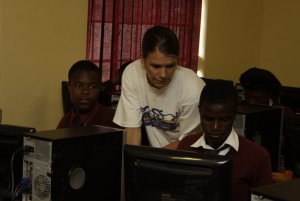
(image not found)
[more]
RHODES AIDS DAY
RHODES AIDS DAY
WOW!!! WHAT A TREMENDOUS DAY WE HAD AT RHODES UNIVERSITY.
WE SPENT OUR DAY LISTENING TO JUSTICE EDWIN CAMERON TELLING US HIS STORY OF HOW HE GOT HIV AND AIDS AND HOW HE DEALT WITH IT.
IT WAS AN INTERESTING STORY AND THERE WAS SOMETHING THAT HE
SAID AND I LIKED IT HE SAID AND I QUOTE "IT DOESN'T MATTER IF YOU HAVE
BOOKS,DEGREES,HONOURS OR MERIT CERTIFICATES BUT AT THE END WE ARE ALL
VULNERABLE.
WHEN HE SAID THAT I JUST FELT SOMETHING STRANGE IN MY BODY
CAUSE FOR THE LAST TWO MONTHS I'VE BEEN BRAGGING ABOUT MYSELF BEING
CLEVER AND STUFF BUT NOW I KNOW LIFE IS TOO SHORT TO BE FOOLING AROUND.
THE BEST PART IS THAT AFTER THE HIV & AIDS
TALK WE WENT TO THE RHODES THEATRE TO WATCH A SHOW BY UBOM!!! CALLED
HUSH AND IT WAS ALL ABOUT HIV & AIDS AND HAD A LITTLE
BIT OF COMEDY IN IT BUT AT THE END IT BECAME SERIOUS AND I LIKED.
IT DOESN'T MATTER EVEN IF YOU WENT THERE ONLY TO WATCH THE SHOW BUT ALL I KNOW IS WE ALL GOT SOMETHING OUT OF IT.
P.S: ALTHOUGH JUSTICE CAMERON GOT HIV/ AIDS WHILE HE WAS GAY NOTHING STOPPED HIM FROM REACHING HIS DESTINY.

[more]
On the 30 of October grade 10's were chosen from VGHS to attend an HIV/AIDS lecture at Rhodes and at 14:30 attend a play touching one of the biggest epidemics this country is facing, HIV/AIDS. While listening to judge,
Justice Camero at the lecture, he did something that many of us would never do, he got personal and i know many were quite shocked, but sitting there through out the lecture I had learned a lot.
That if you took your Arv's and your medication long enough and actually was committed to getting healthy, your life span could be the same as any other normal healthy person not diagnosed with HIV. that truly amazed me. As for the uBom production it was about letting people know that they shouldn't be ashamed of talking about their status.
The people performing were good, because of the way they acted it out about things that happen in our daily lives, I'm sure it gave people a better understanding about the issue at hand and how to deal with it. The production taught students and I'm sure the adults, that were there to be careful and that its not a bad thing to be safe, even if you are in a long stable relationship.
[more]
RHODES AIDS DAY
WOW!! What an awesome day in R.U and we were there having
good time & learning new things like people must not be
scared to go to the test, people must not be scared to tell other people
to go to the test and we were listening to JUSTICE EDWIN CAMERON
telling us about his story life that when he heard that he is HIV
POSITIVE he didn't give up his life.
And he said when someone is HIV POSITIVE that doesn’t mean
its OVER. He said if you take good care of your life and eat healthy
food and take your treatment everyday you will have a good normal life.
And we went to RHODES THEATRE to watch a good awesome PLAY that play was pretty awesome.

[more]
So on the 30th of November i was invited to attend the Rhodes annual aids commemoration. it being my first time I didnt know what to expect , there was a big crowd for starters I certainly did not expect that. I scanned the room a fair amount of variation of people and I thought this is going to be interesting...
ALL the speakers seemed to be doing well for themselves as they were all Doctors and the guest speaker,a judge.
Judge Cameron started by saying "What a long C.V I have but I tell you now it all does not matter because we are all vulnerable to HIV."
Then he went on with his talk , I say talk because it surely did not feel like a lecture, he engaged each and every one of us from his first confession of being homosexual and being infected with the HI virus, now that is brave.
The core of his talk was for South Africa to try rid the stigma we have on this virus and start treating it as a normal illness. This got me wondering why we are so afraid of testing for HIV because if you actually think about it what is stopping a the virus from killing us if we dont know its in our system. What in our right minds thinks that the virus is flowing in our system saying ' ohhh lets not attack her she hasnt tested yet' dude! if you've got the virus you've got it by you not knowing you are actually putting yourself at an even greater risk.
A way of decreasing the stigma is by actually sharing stories, discussing the matter and trying to normalize the virus as much as we can.
As Judge Cameron said 'instead of asking have you tested , we must get to a stage where we ask when last have you tested' which led me to create my first quote
'We are afraid of the unknown , yet if we were to know it...we could manage it , then why the fear?' Chwayita Yose
so get tested and know your status...
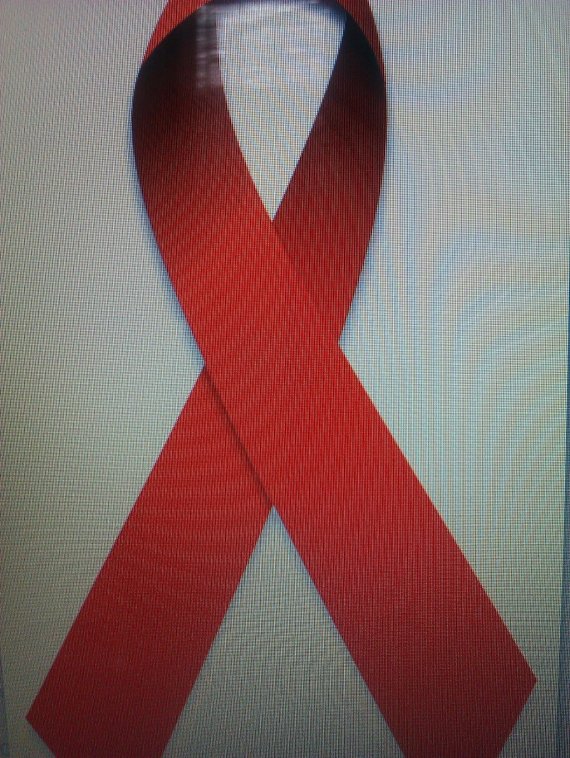
[more]
Usually, when the youth of today hear the word HIV/AIDS they get irritated or annoyed because of one of two reasons - they are scared of talking about it, or they just feel that we have spoken about it way too much. To tell you the truth, I also felt that we talk about it way too much. I mean, we have been educated about this disease and we know how to treat or prevent it. Judge Cameron mentioned the fact that most people in society say that people should just protect themselves i.e. use condoms, and in his talk he said that it's not that simple. He elaborated on on that statement, of course, and the more he spoke about how complicated the whole thing is - because of the stigma that is built around the whole issue of being infected and affected by HIV/AIDS - the more I felt like I had been ignorant about the whole thing. I go to an excellent school that educates us about this disease; how to prevent it, how to treat it, the steps that have been taken to find a cure etc., and one thing that I notice is that I have overlooked the emotional aspect of this 'situation'...I am not proud to admit that, but I feel that being honest about it shows that I understand that it was wrong. Anyway, this fantastic school may have taught me the basic ins and outs of the disease and also how to deal with and support the people who have it, but my ultimate opinion about the whole thing is really something I cannot be taught. What struck me the most about Judge Cameron is how open he was about his status and sexuality. When he first disclosed those PERSONAL things, I was so taken aback and I immediately started looking around at the people that were in the lecture hall, because I knew for a fact that most people in this country do not just easily accept those with HIV or those who are homosexual, LET ALONE BOTH! I wondered if the people in that room were still going to be willing to listen to what he had to say...but you know what, they did. He is living proof that the main problem that this country has is that we are not willing to talk about this openly and empathetically. My experience in that lecture hall was definitely life changing for me and I will forever be indebted to VGHS for giving me the opportunity to get into the mind of a great man.
[more]
The first thing which Judge Cameron said to us was did you hear that long C.V, well it does not help because at the end of the day we are all still venerable. This really surprised me as often we are told a good education is all we need. This AIDS talk was very different to any other AIDS talk I have been to. The way which Judge Cameron addresses us on such a personal level was really different and interesting. He broke down that image we all have of someone with AIDS. The one thing which kept coming back, to was the fact that we need to talk about AIDS. We need to take away the fear which people still have. Judge Cameron also went on to ask us how people generally feel when asked if they have been tested or not which the audience answered "offended". He went on to explain that it shouldn't be like that, rather that we should feel that, that person cares about us. Judge Cameron really showed us the importance of breaking the fear of AIDS.He said that just like people talk about having Cancer and not being afraid that they will be judged. People should be able to talk about having AIDS without the fear of someone else judging them. He emphasized the power of sharing and how much we could change if we were not afraid to be open. If there is one thing I took away from Judge Cameron's talk its that yes, AIDS is a epidemic of sadness, death and fear but it is also one of hope. With that in mind we can move forward and break all the fear and the stigma around AIDS. We went on to watching Hush which was very interesting. It showed all the stigmas and fears around the AIDS and also put forward what judge Cameron said about the fact that we should not be afraid to speak out about AIDS. It also showed how people react to AIDS and the fact that you can never just look at someone and know if they have AIDS or not. So if anything we still need to talk about AIDS. Make people feel comfortable and make AIDS normal! On top of that we all need to have HOPE!
[more]
The day was wonderful. I think it is safe to say that the V.G.H.S girls learned a lot (I certainly did). Judge Cameron is also an inspiration to a lot of people, including me. I thought he was very brave and for the first time ever, I felt that that was the one environment that homosexuals as well as those with the HI Virus could feel safe and comfortable enough to learn more about their lifestyle. I also found it very encouraging to see so many people attending an AIDS Day event in such bad weather, considering the fact that AIDS is such a sensitive topic and how people see it as a hands-off subject. I was also very touched to see so many people of my own race there to learn more as most black people are very touchy about the issues that were spoken about. The people that organised the event were also very warm and humble. It is so motivating to see that there are people who are willing to be open-minded about these issues. I personally thought (and still think) the environment we were in was the ideal world for the infected, the affected and the homosexuals. People like Judge Cameron and Dr. Mabizela deserve a medal for not giving up on those that aren't educated about these things. I admire them for that. I am sincerely grateful to Dr. Hanton, Mr. Mitchell, Ms. Claypole and Ms. Potberg for giving me the opportunity to have been around such inspirational people.
[more]
I really enjoyed the Rhodes AIDS Day for many reasons but the main reason is I've heard so many facts about HIV/AIDS and I thought that I understood it very well but not many people are willing to discuss it on a personal and emotional level. Judge Edwin Cameron's speech was not the usual AIDS speech when the person just recites the facts without telling the undesirable truth that, the main problem is not the disease itself but it is the stigma attached to it. The disease is manageable through medicine and healthy choices in diet and exercise, but people victimise people that are infected, because they do not understand it so they fear it.He said that the stigma does not come only from other people, it is also an internal struggle and I fully agree with this. People do not understand that it is like any other disease and it can be manged and Judge Cameron is visible proof of this. He discussed his emotional struggles with AIDS and if more people were able to do this it would improve this stigma.An ideal situation would be one with people who are able to discuss it comfortably in communities. AIDS is a horrible disease but it does not discriminate if only people were able to do the same and stop stigmatising.
[more]
Most people (Including myself) think that were worst thing about HIV-AIDs is the fact that it's incurable.Yes, that is one of the most frightening aspects of the virus, but Judge Justice Cameron proved to us that there was something more powerful about the virus that makes us all fear it - Stigma. Judge Cameron talked about the state of mind of a person who has been just diagnosed with the virus. He talked about the fear, the fear of not being accepted, the fear of constantly being labelled as a sexually reckless person. He said that the thought of being socially isolated and judged is what makes most people scared to come out and talk about this virus, or ask for help on how to manage it.
Most talks that I have attended about HIV constantly talk about a cure to free us from this virus, Judge Cameron also talked about a cure. Another kind of cure, a mental cure, to free ourselves from the misconceptions about HIV to help those infected to worry about other things than "What will they say?" or "Will they ever treat me normally"
One way or another we are all affected by HIV, by allowing it to keep us in fear. By letting it define the kind of lives we will have if ever we were to contract it, by letting it change the way we think, and most destructive of all- by letting it destroy the last rays of hope we have.
What you can do to help with the fight against HIV is to treat the people with the virus the same way you would treat people without it.Dont assume that just because a person has the virus, that they have been sleeping around, there are many different ways of contrcating the virus and just one partner is enough.Also to encourage your friends not to discriminate against people who live with the virus, and to always have safe sex if not abstain.Get tested so that you can protect those you love.Overcoming this virus depends on our honesty towards those we love and care for.
[more]
A nice pose of VG learners with Judge Cameron after they attended the talk!
 
[more]
Constitutional Court Judge Edwin Cameron
is regarded around the world as an inspirational figure for his work
in human rights activism, championing gay and lesbian equality, and
his outspoken stance on HIV/Aids.
Edwin was born in Pretoria in 1953 and finished his schooling at
Pretoria Boys High. He was able to study at Stellenbosch University
after receiving the Anglo-American Corporation Open Scholarship
award, and went on to complete his BA Law degree and Honours in
Latin.
Judge Edwin Cameron started of he talk by telling us worlds Aids
Day is on the 1 December we need to raise awareness and know our
Status. Judge Cameron was diagnose with Aids in the early
“80” he was Guy and was very shock when he got to know he’s
status. He develop a STIGMA(meaning A mark of disgrace associated
with a particular circumstance, quality, or person: "the stigma
of mental disorder".) about hes fatal disease and felt ashamed
to have this disease.
Why was he feeling ashamed?Because he was guy and fought this deep
secret until he was 40.He kept quite about having this disease and
felt ashamed. He started working for HIV/AIDS Assisting Mine workers
wife’s that’s partners we positively diagnosed telling them they
felt ashamed and of having HIV developed a Stigma a eternal stigma
way inside themselves.
Judge Cameron started speaking about he’s disease after 3 years
to family and friends it was tough going speaking about he’s
status. In 1997 he became very ill he lost 10-14kg had terrible
Ammonia,Gastric Flu and thrush in he’s mouth. In 1996 the first
ARV s were made available but at great cost. Judge Cameron said he
use to earn R12 000 a month in that as a judge and R4000 a month was
just spent on ARVs within 2 years he was so much healthier and he had
he’s life back. Today he celebrate 15 years of good health!
Judge Cameron went on to say to prevent HIV you have to be tested
1.7 million receive treatment and most people get treatment from
the government hospitals and clinics. Stigmas are dropping we need to
talk about HIV because not enough people are talking about HIV. The
life expectation of people living with HIV are that are on ARVs are
living the same Life span then normal people not effected with HIV.
He ended off by saying “Stand together talk about the fact talk
about prevention,treatment and encourage others to be tested lesson
Social Solidarity!

[more]
A few Images were taken during the Rhodes Aids Day were three learners had the opportunity to attend a talk by Judge Cameron where after they attended a performance by UBOM a local dance group from Grahamstown.
[more]
|
|

Please log in to view this section.
Last Edit 
 |
| by: |
Terri-Lynn Penney |
| on: |
2012-12-11 14:09:25 |
|
Their Other Projects 

Please log in to view this section.
|

